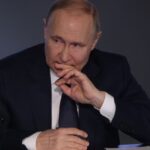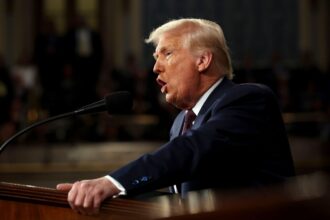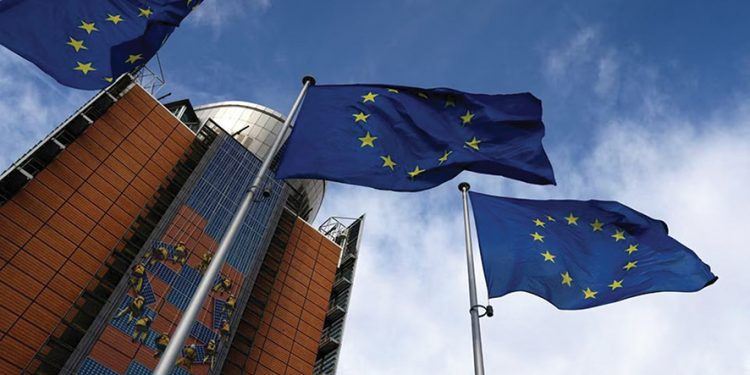**European Union Imposes 10th Package of Sanctions on Russia**
The European Union has approved its 10th package of sanctions against Russia, one year after Moscow’s invasion of Ukraine. The sanctions target Russia’s economy and military capabilities, with a focus on restricting exports to Russia.
**What the Sanctions Include**
The new sanctions restrict EU exports to Russia, affecting technological components and industrial goods worth €11 billion. This is in addition to previous restrictions on exports worth €32.5 billion. The sanctions also ban the export of dual-use and high-tech goods, including electronics, specialized vehicles, and spare parts for aircraft engines.
Additionally, the EU has banned imports from Russia, including bitumen, synthetic rubber, and carbon blacks. These restrictions affect goods worth €1.3 billion, on top of previous sanctions on imports worth €90 billion.
**Targeting Third Countries**
The EU has also extended its sanctions to include third countries that support Russia’s aggression in Ukraine. This includes nations like Belarus, which has been accused of providing military aid to Russia.
**Impact on the Russian Economy**
The sanctions have had a significant impact on the Russian economy, with the International Monetary Fund (IMF) predicting a 2.2% decline in GDP last year. The World Bank and OECD forecast even greater declines, at -3.5% and -3.9%, respectively.
Russia’s foreign trade has also decreased, with exports falling by 16% and imports decreasing by 19.2%. The trend is expected to continue this year, with exports dropping by 3.4% and imports growing by 5.6%.
**Budget Deficit and Inflation**
The Russian budget deficit increased to $47 billion last year, with the Ministry of Finance predicting a deficit of 2% of GDP in the current year. However, the oil price ceiling set by the G7 and EU member states will reduce Russia’s budgetary revenues, leading to an estimated budget deficit of 4.5% of GDP this year.
Inflation has also been a concern, with the annual inflation rate reaching 13.8%. The IMF predicts that prices will continue to rise in 2023, by 5-6%.
**Western Countries Diversifying Supply Chains**
The sanctions have led Western countries to diversify their supply chains, reducing dependence on Russia for energy and other products. European countries have achieved the greatest success, with a significant reduction in Russian energy imports.
**Conclusion**
The coordinated steps of Western partners have had a significant impact on the Russian economy, limiting its technical capabilities and recovery potential. The sanctions are expected to continue affecting Russia’s economy and military capabilities, weakening Moscow’s global influence.












